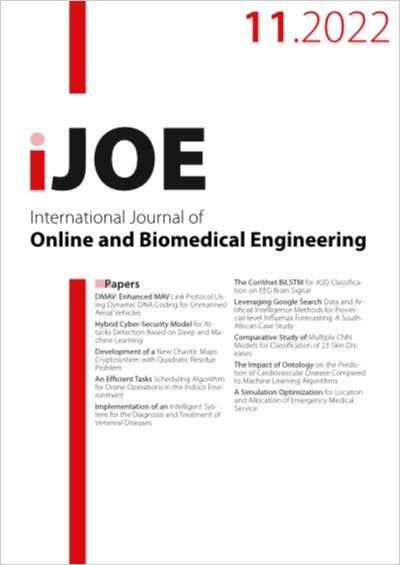The Impact of Ontology on the Prediction of Cardiovascular Disease Compared to Machine Learning Algorithms
DOI:
https://doi.org/10.3991/ijoe.v18i11.32647Keywords:
ontology, machine learning, SWRL, prediction, cardiovascularAbstract
Cardiovascular disease is one of the chronic diseases that is on the rise. The complications occur when cardiovascular disease is not discovered early and correctly diagnosed at the right time. Various machine learning approaches, including ontology-based Machine Learning techniques, have lately played an essential role in medical science by building an automated system that can identify heart illness. This paper compares and reviews the most prominent machine learning algorithms, as well as ontology-based Machine Learning classification. Random Forest, Logistic regression, Decision Tree, Naive Bayes, k-Nearest Neighbours, Artificial Neural Network, and Support Vector Machine were among the classification methods explored. The dataset used consists of 70000 instances and can be downloaded from the Kaggle website. The findings are assessed using performance measures generated from the confusion matrix, such as F-Measure, Accuracy, Recall, and Precision. The results showed that the ontology outperformed all the machine learning algorithms.
Downloads
Published
How to Cite
Issue
Section
License
Copyright (c) 2022 Hakim EL MASSARI, Noreddine Gherabi, Hamza Ghandi, Sajida Mhammedi, Mohamed Bahaj, Syed Muhammad Raza Naqvi

This work is licensed under a Creative Commons Attribution 4.0 International License.



